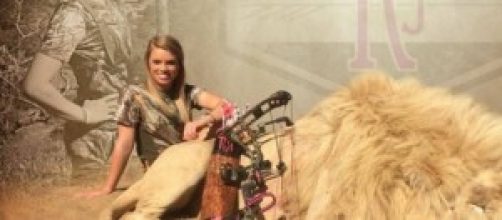An attractive blonde girl, beaming - lip gloss intact - is crouched over the carcass of the most regal, and endangered animal in Africa. It's not surprising that many people haven't exactly warmed to those who have been posting their photos with: 'hash-tag trophy hunting' plastered all over them. However reluctantly, it's always best to look into the alternate side to the story: the argument for trophy hunting safari.
With minimal effort into research, it's easy to scan the pages of safari websites: many of which state their ethnical information as clearly as possible. What regurgitates often are phrases such as: 'funding long term conservation efforts' which is the main reason for hunting endangered species.
One website for an organisation run in Uganda printed on their homepage 'Crocodile, Hippos and Leopards can only be hunted when they are identified as problem animals by Uganda Wildlife Authority.' Perhaps we should be more trusting of those who protect our wildlife, especially if they are following officials?
Craig Boddington, a US journalist, has been on numerous trophy hunts in Africa, along with his two daughters. In an interview he stated: 'The revenues are really, really important for funding the anti-poaching efforts and maintaining the viability of the species.' One big question protesters have been trying to have answered is: what is the difference between poaching and trophy hunting?
Kendall Jones as pictured above, has come forward and supported her actions: 'Yes, I am a hunter, but I'm a conservationist first and foremost... Most people don't understand that hunting is and always will be a useful tool for conservation.'
It's practically impossible to know for sure whether hunting is actually benefiting the conservation; in each different country and every organisation. While it seems cruel to be harming other creatures - especially when they need our protection from extinction - it does well to also remember that we are carnivores ourselves, and it is in our instinct to hunt for meat.

